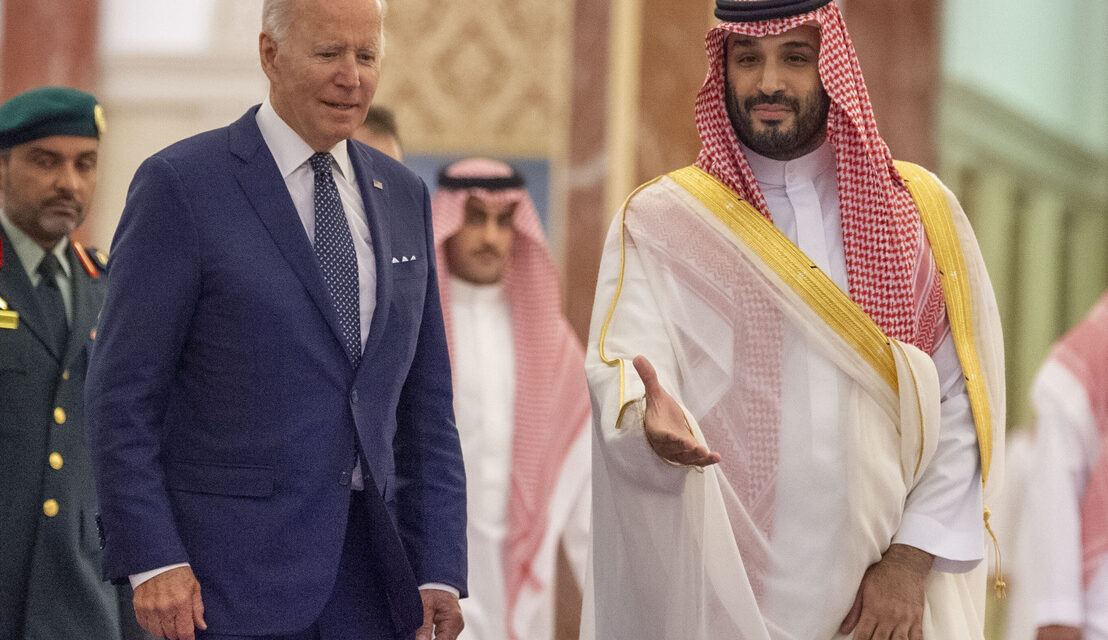With the end of the petrodollar, a new world order may emerge.
Oddly enough, the Soviet Union was one of the first countries to establish diplomatic relations with Saudi Arabia in 1932. At that time, the Soviet state made friends with the young kingdom not because of oil, but because of competition with the British. Soon, Saudi Arabia made a complete turnaround, becoming one of the most loyal allies of the West and especially the United States.
The USA undertook the military protection of the Arab country, in return Riyadh introduced the so-called "petrodollar" system, that is, it sold its oil exclusively for US dollars. This was also accepted by most members of OPEC, which brings together the oil-producing countries, further strengthening the role of the dollar as a world currency. In addition to its formidable military and economic potential, this "world dollar" made the United States a hegemonic superpower. This is why the national debt of the USA could soar to astronomical levels, and why the interest rates on American bonds are so low, this ensures the financial base of the "American dream".
But the good world never lasts forever. Over time, the Saudi leadership had to realize that its petroleum resources are not endless, and moreover, the much-talked-about "green turn" with renewable energy could destroy the business over time. (In the latter respect, they were fearful and needlessly worried, a green turn, if it will happen, will happen more slowly than planned in the West.)
Russia accounts for 13 percent of the world's crude oil production, and Saudi Arabia for 12 percent. It seemed logical that the two countries should coordinate their price policies,
and production is regulated according to their own interests, together with the other OPEC countries. King Salman's visit to Moscow in 2017 (with an entourage of 1,500 people) was considered a sensation at the time and filled Washington with understandable concern. Russia became a member of OPEC's outer circle, the so-called OPEC+, officially in order to "stabilize the oil market". All of this was justified by market considerations on both the Arab and Russian sides, and no ideological statements were made on either side at that time.
Then the over eighty King Salman slowly handed over all power to his son Mohamed bin Salman, born in 1985. The younger Szalmán is a complex individual, to put it succinctly, he belongs to those who modernize with harsh repression. While his father was primarily driven to Moscow by the common economic interest, it can be rightly assumed that he also sympathizes with the leaders who modernize their country in a similarly authoritarian manner. Already in 2018, Western commentators noted with concern that the young prince went beyond protocol and greeted President Putin almost enthusiastically at the G20 summit, even though at that time Donald Trump was still the president of the United States, whose son-in-law Jared Kushner had built a friendly relationship with with a prince.
After the election of Joe Biden as president, the new American administration rightly raised the issue of Saudi violations of human rights, including the brutal murder . But due to the growing energy crisis, the United States could not give up Saudi oil, so after the Russian invasion of Ukraine, President Biden was forced to make a pilgrimage to Riyadh, asking the young crown prince for cheap oil. A good part of the international press felt that this trip and its consequences were a conscious humiliation of the American president. the Biden visit , Saudi Arabia did not increase, but reduced its oil production, according to the American assessment, thus helping Russia against the United States. Let's add objectively: in the end, what happened is that you can't give cheaper what you can give more expensively, which stems from the logic of the free market. But because of the war in Ukraine, this could indeed seem like a harshly anti-American move.
The sudden Russian-Saudi friendship does not sit well with Washington, but it cannot cause serious damage to the United States, which could ultimately be self-sufficient in crude oil. On the other hand, due to the threatening proximity of Iran and the latent internal contradictions, Riyadh cannot completely separate itself from the United States either.
In the long term, it will be a much more serious challenge for Washington if China and Saudi Arabia switch from dollar-based to yuan-based settlement in oil trade.
According to the latest news, this bold idea may soon become a reality, which will presumably be followed by several other OPEC member states. Businesses conducted in dollars would thus decrease by enormous amounts, having a negative impact on the American economy and its creditworthiness. Switching from the dollar to the yuan is of course not a risk-free adventure, no matter how brave the young prince is as a reformer, he must plan this step well.
Although the Russian-Ukrainian conflict has fortunately not yet escalated into a world war, its effects are changing the entire world. Many people have already considered leaving the dollar-based system, but the decisive step was taken by the way the USA and the EU blocked Russia's savings held in foreign, Western currencies, sanctioning Moscow with harsh financial instruments. China understandably doesn't want to experience the same, so it's starting to reduce its exposure to the dollar ahead of its big showdown with the United States. If it succeeds in breaking away from the dollar, many non-Western countries will follow suit due to similar concerns. This could be a decisive step towards the transformation of the unipolar world order into a multipolar one. Of course, the United States will not collapse, it will remain a huge military and economic power, but the cessation of possession of the world currency will moderate its power.
CNN commentator Fareed Zakaria, one of the main ideologues of American liberalism, therefore made an open appeal to President Biden, whom he otherwise respects. He warned that the unprecedented sanctions against Russia could lead many major countries to abandon the US dollar. As he put it, if the USA can defeat Russia, as a result of the brutal sanctions, more and more countries will reduce their dependence on the United States. Zakaria is a smart man who knows how
maintaining American hegemony requires both reason and composure.
Burning with an ideological fever, Joe Biden's exalted team thinks differently, subordinating everything to breaking Russia and even punishing countries that show neutrality in the conflict. The American midterm elections will reveal how much support this has at home.
Gyula Hegyi, former member of the European Parliament
Featured Image: U.S. President Joe Biden and Saudi Arabia's Crown Prince Mohammed bin Salman meet in Saudi Arabia on July 15, 2022. Photo: Royal Court of Saudi Arabia / Handout / Anadolu Agency / Getty Images













